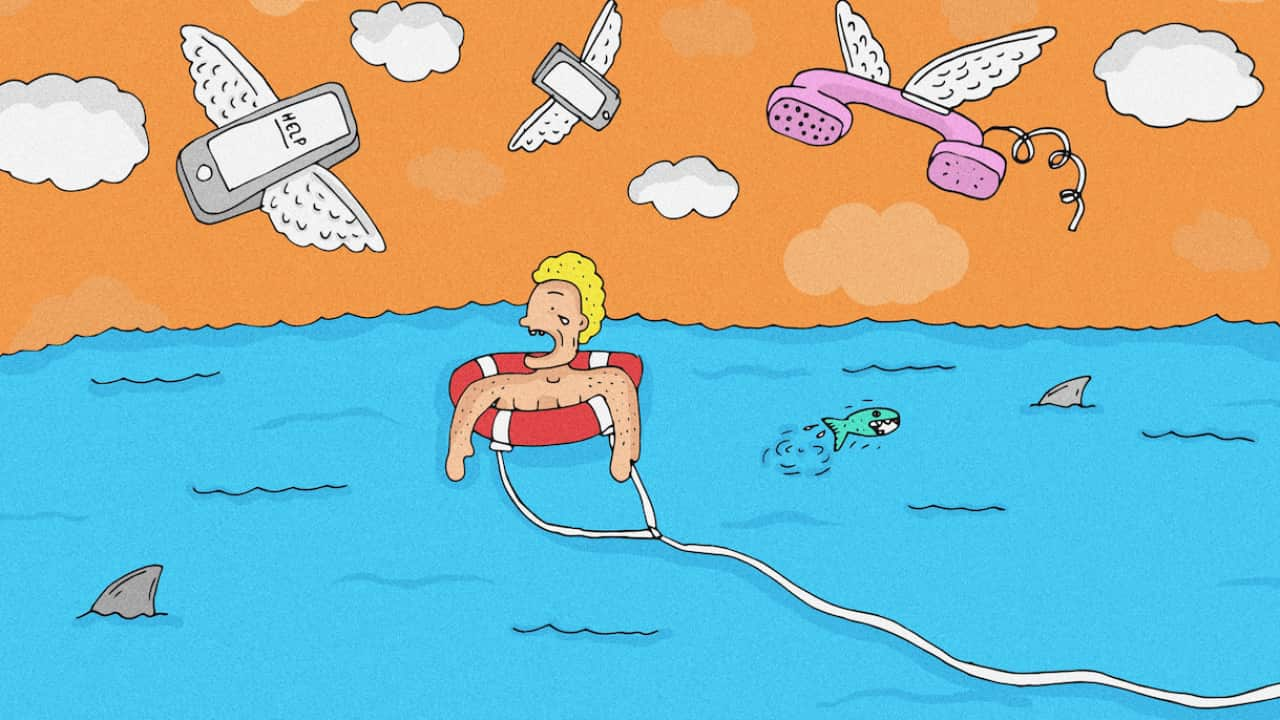"Sounds like you're deciding whether you're straight or a lesbian."
That's almost verbatim what my last psychologist said to me as I stared back at her, completely dumbfounded.
It was a classic case of bi-erasure, and my first experience with the kind of blatant ignorance to bisexuality that I'd heard so much about in the LGBTQI circles I ran in.
It’s safe to say I didn't book another appointment with that woman. But not going ahead with our sessions left me in a difficult position: At that point in time, I had found myself amidst a personal crisis - caught in a crossfire between my physical preference for men over women and my emotional preference for women over men. What did this mean for my recently-ended relationship of two-and-a-half years with a woman? Were my feelings just a lie I told myself to be 'different'? If I'd only ever experienced emotionally and sexually abusive relationships with men, was that all I could ever expect? Would I never be truly happy in any relationship I was in?
The anxiety, self-hatred, and catastrophising continued, and I knew I needed professional help.
I had to find a psychologist who was well enough embedded within the LGBTQI community that they could understand the position I was in. Someone who could comprehend the nuanced aspects of bisexuality, patriarchal oppression and sexual trauma to help me find a pathway through the tangled weeds of my mind.
Google searches brought up nothing that felt welcoming - more like an array of Stepford Wives-esque equivalents: private clinics with picture perfect images that threatened to reveal their true, queerphobic form once the curtain was pulled back. It wasn't until I asked for recommendations online and waded through the numerous comments commiserating with how hard it is to find LGBTQI-centred psychologists that I finally learnt about Drummond St.
In Drummond St, I found someone who I could talk to about anything without fear of my bisexuality being erased. If anything, it's more fiercely validated every time I question my position within the LGBTQI community. I don’t have to worry that my concerns or anxieties are going to be met with judgement or biased opinions. For anyone who understands the struggle of finding a psychologist who meets you on an intellectual and personal level - you’ll know it’s no exaggeration when I say I feel like I’ve won the mental health lottery.
But it’s important to know that the answer of Drummond St didn’t come as a resounding cry from the whole LGBTQI community; it was one person’s suggestion. And when I finally worked up the nerve to make the call, I was given a four-month waiting period before I could expect an appointment.
Without access to professional mental health services that include the vocabulary and lived-experiences of the LGBTQI community, more people within it are going to come face-to-face with psychologists as ill-equipped as the one I found - if not worse. And they’ll have to pay for it not just psychologically, but financially as well. It’s no secret that a single session with a mental health professional can easily fall somewhere around the $150 mark. And when Medicare can only offer a partial rebate for 10 sessions per calendar year? Sucks to be anyone who needs access to professional support more than once a month, I guess.
But I’m not just a girl, writing an op-ed piece, begging the world for more easily accessible, cheaper metal health resources for my pals. The health industry recognises the problem too. The National Australian Pharmacy Students’ Association (NAPSA) last year that “the mental health of LGBTQI+ people is amongst the poorest in Australia”.
When you consider that more than three times the number of bi or gay people experience affective disorders such as depression, bipolar, and anxiety disorders in comparison to their hetero counterparts, that 50% of trans people have attempted suicide at least once, and that 20% of trans and 15.7% of lesbian, gay, and bisexual Aussies are currently grappling with suicidal ideation, it’s undeniable that our community is vulnerable.
The statistics prove how direly the LGBTQI community needs more resources for mental health, and how desperately the resources that already exist are struggling to be found amidst the privately funded, SEO-ready, booming industry of psychology.
If you're based in Melbourne, I can't recommend Drummond St Services enough. I only hope that the number of valuable mental health resources continues to grow for the LGBTQI community - so everyone who needs it can find affordable, ongoing access to professional mental health support.


